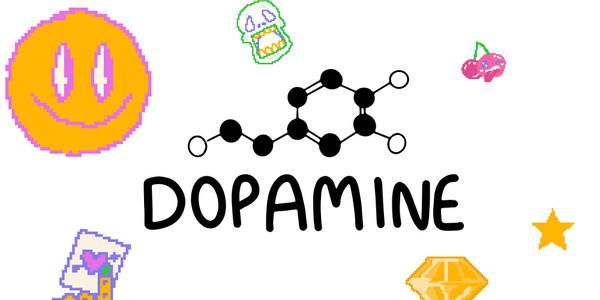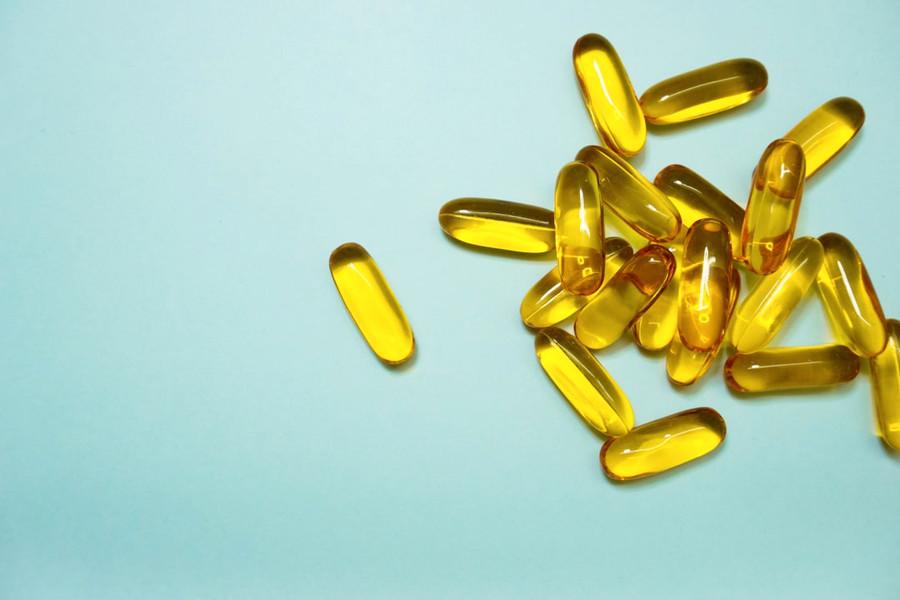Dopamine Deficiency: Symptoms, Causes & Treatment
Curated from: my.clevelandclinic.org
Ideas, facts & insights covering these topics:
12 ideas
·26.3K reads
114
4
Explore the World's Best Ideas
Join today and uncover 100+ curated journeys from 50+ topics. Unlock access to our mobile app with extensive features.
What is Dopamine Deficiency?
- Dopamine is a neurotransmitter and a hormone. It communicates chemical messages between nerve cells in your brain or between your brain and the rest of your body.
- It plays an important role in many of your body’s functions, including memory, motivation, learning, reward and movement.
- Dopamine deficiency means having a low level of dopamine.
- Low dopamine levels are linked with certain health conditions like Parkinson’s disease and depression. It may also make you more susceptible to taking risks or developing addictions.
228
3.39K reads
What Causes Low Dopamine levels?
- Low dopamine level occurs if there’s an injury to the areas of the brain that make dopamine.
- One could also have a low level of dopamine if the body doesn’t properly respond to dopamine (problem with nerve cell receptors that pick up and pass along the chemical message).
- Certain health conditions are linked to dopamine deficiency. For example, people with Parkinson’s disease have a loss of nerve cells and dopamine in particular areas of their brain.
- People with cocaine addiction need more of the drug to achieve the intended effect because of damaged dopamine receptors in their brain.
213
2.76K reads
What are the Symptoms of Dopamine Deficiency?
Symptoms of dopamine deficiency (low dopamine levels) may include:
- Feeling lack of motivation, “the drive.”
- Feeling tired.
- Can’t concentrate.
- Moody or anxious.
- Not feeling the pleasure from previously enjoyable experiences.
- Feeling depressed; feel hopeless.
- Have low sex drive.
- Have trouble sleeping or have disturbed sleep.
232
2.71K reads
Other Symptoms of Low Dopamine Levels
- Hand tremors or other tremors at rest, loss of balance or coordination, increased muscle/ limb stiffness, muscle cramps (symptoms of Parkinson’s disease).
- Problems with short-term memory, managing daily tasks and solving simple thinking problems (symptoms of cognitive changes).
- Problems with anger, low self-esteem, anxiety, forgetfulness, impulsiveness and lack of organizational skill (symptoms of attention deficit hyperactivity disorder ).
- Social withdrawal, reduced emotions, don’t feel pleasure (negative symptoms of schizophrenia ).
- Gastrointestinal symptoms, including chronic constipation .
217
2.41K reads
How is Dopamine Deficiency Diagnosed?
- Dopamine deficiency isn’t a medical diagnosis.
- A blood test alone doesn’t provide much useful information, either. A blood test can measure dopamine levels but can’t determine how your brain responds to dopamine.
- Instead, your healthcare provider will gather one's medical history, ask lifestyle questions (including alcohol and drug use), symptoms, examine and order any needed tests based on one's symptoms.
- With those information and the findings from your tests, your healthcare provider will determine if you have a medical condition related to a low dopamine level.
205
2.11K reads
How are conditions that are linked to dopamine deficiency treated?
Treatment of dopamine deficiency depends on the underlying cause.
- Parkinson’s disease. In some cases, dopamine agonists may be used. Dopamine agonists work by mimicking dopamine, causing nerve cells to react in the same way.
- Restless legs syndrome. This condition is also treated by dopamine agonists .
- Depression. Treatment of depression may include selective serotonin uptake inhibitors that affect both the neurotransmitters serotonin and dopamine to make them work.
- Attention deficit hyperactivity disorder (ADHD). This condition can be treated with medication that increases dopamine activity.
208
1.93K reads
How can I increase dopamine levels in a natural way?
- If you think you have a low level of dopamine, see your healthcare provider.
- If an illness can’t be diagnosed, you may wish to try remedies that naturally increase dopamine.
- Keep in mind that natural ways of treating dopamine deficiency through food may still need to be further researched on, and effects on each person varies from body to body.
202
2.01K reads
How Can I Increase Dopamine Levels in a Natural Way?
- Eat a diet that’s high in magnesium and tyrosine-rich foods. These are the building blocks of dopamine production.
- Tyrosine is an amino acid. It’s absorbed in your body and then goes to your brain, where it’s converted into dopamine.
- Food known to increase dopamine include chicken, almonds, apples, avocados, bananas, beets, chocolate, green leafy vegetables, green tea, lima beans, oatmeal, oranges, peas, sesame and pumpkin seeds, tomatoes, turmeric, watermelon and wheat germ.
283
2.1K reads
How Can I Increase Dopamine Levels in a Natural Way? (Part 2)
- Engage in activities that make you happy or feel relaxed. This is thought to increase dopamine levels.
- Some examples include exercise, meditation, yoga, massage, playing with a pet, walking in nature or reading a book.
224
1.98K reads
What Supplements Raise Dopamine Levels?
Supplements that increase dopamine levels include:
- Tyrosine. Tyrosine is a natural amino acid and a precursor to dopamine. (Dopamine is made from tyrosine.)
- L-theanine. L-theanine is another precursor to dopamine.
- Vitamin D, B5 and B6. These vitamins are needed to make dopamine.
- Omega-3 essential fatty acids.
- Magnesium.
270
1.82K reads
What else do I need to know about dopamine deficiency?
- Low dopamine levels can’t be looked at in a “black and white” way. It’s a complex subject.
- It’s important to know that low dopamine levels don’t cause medical conditions.
- There’s a link or association, but low levels don’t directly cause the medical conditions.
- Even more confusing are the concepts of causation and correlation. For example, lower dopamine levels are linked with obesity. It’s known that the foods you eat and exercise can affect how your brain uses dopamine.
199
1.57K reads
Summary
- Dopamine deficiency can affect your physical and mental health.
- Many medical conditions are linked to (not caused by) low levels of dopamine, including Parkinson’s disease, restless legs syndrome, depression, schizophrenia and attention deficit hyperactivity disorder (ADHD).
- Treatments are available to manage these conditions. Other methods to raise low dopamine levels may be considered; but, be sure to speak to your healthcare provider first.
- You and your healthcare provider will work together to find the best approach to manage your dopamine deficiency.
201
1.52K reads
IDEAS CURATED BY
Lawyer turned Artist Visionary Curator & Gallerist. Empowering self-love and joy through art & words. www.innerjoyart.com 💝 Instagram : dymphna.art
CURATOR'S NOTE
Understanding what dopamine deficiency is and how it may affect one's health, plus natural ways to help increase its level may be useful to increase our health consciousness.
“
Similar ideas
12 ideas
How to Increase Your Dopamine Levels Naturally
verywellmind.com
4 ideas
Parkinsonism: Symptoms, treatment, and diagnosis
medicalnewstoday.com
1 idea
How does Dopamine Work?
healthline.com
Read & Learn
20x Faster
without
deepstash
with
deepstash
with
deepstash
Personalized microlearning
—
100+ Learning Journeys
—
Access to 200,000+ ideas
—
Access to the mobile app
—
Unlimited idea saving
—
—
Unlimited history
—
—
Unlimited listening to ideas
—
—
Downloading & offline access
—
—
Supercharge your mind with one idea per day
Enter your email and spend 1 minute every day to learn something new.
I agree to receive email updates












